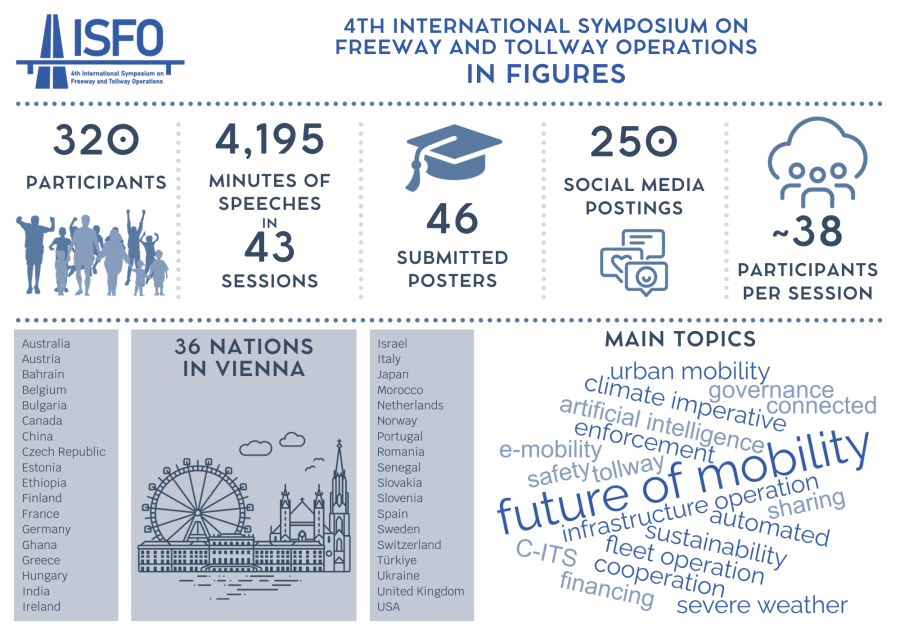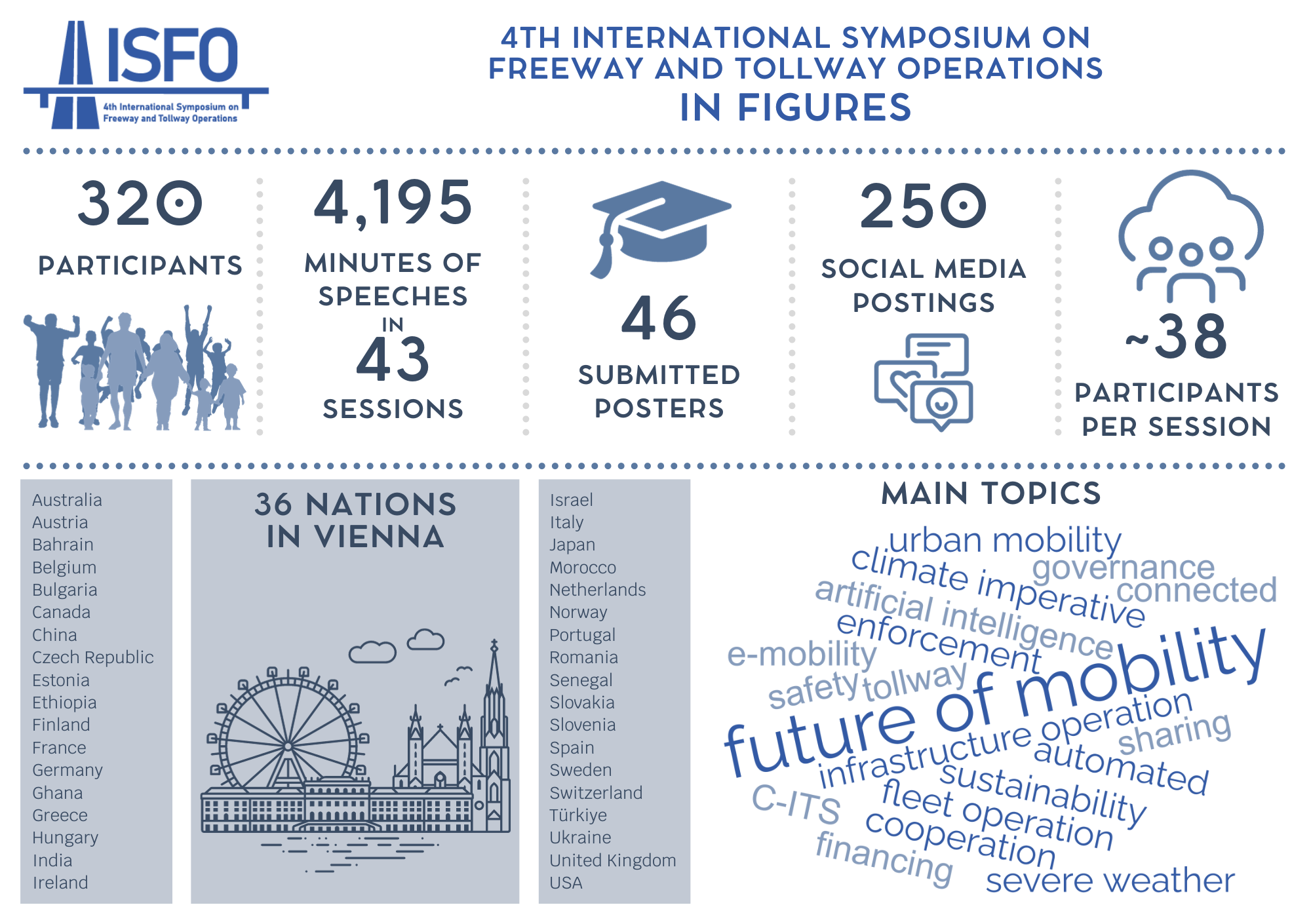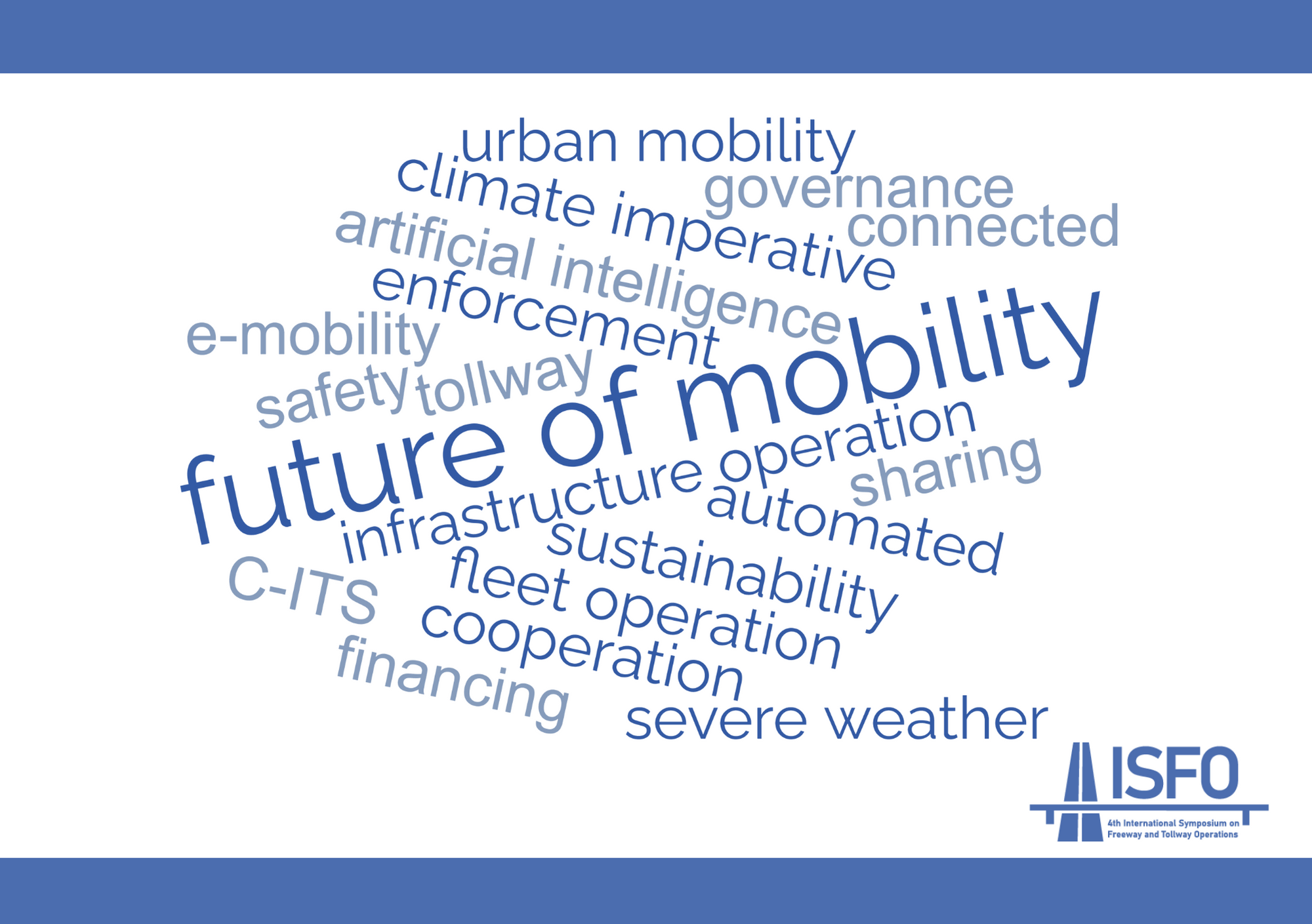The International Symposium on Freeway and Tollway Operations 2023 was a dynamic gathering that witnessed a total of 4,195 minutes of insightful speeches spread across 43 unique sessions. With participation from 320 attendees from 36 nations, the event served as a global platform for knowledge exchange and collaboration.
Extended Recap Publication | More Insights from the Symposium | 6 Key Themes for the Future | Photos

This video provides a concise overview of the event, featuring insights from Beverly Kuhn and Martin Russ.
At the ISFO 2023 in Vienna, experts converged to explore innovations in traffic management. This gathering was more than a meeting of minds; it was a crucible for identifying the pressing research needs that will shape the future of transportation. In the following, we delve into the six key areas of concern, providing insights into the critical research avenues that emerged during the conference.
1
|
Climate Impact and Severe Weather Management
|
Urgently addressing climate change's effects on infrastructure and managing severe weather events is paramount. Recent global events underscore the urgency of adapting transportation systems to mitigate risks effectively.
|
2
|
Urban and Multimodal Traffic Coordination
|
Coordinating urban traffic, including emergency services, public transit, and traffic signals, presents intricate challenges. Collaborations with data providers and improved stakeholder cooperation are essential. Research must focus on enhancing traffic management in these complex environments.
|
3
|
Collaboration and Data Sharing
|
Encouraging stakeholder collaboration and seamless data sharing is crucial for innovation. The potential for shared data to address global challenges is immense. Collaborations with agencies like the Environmental Agency offer promising avenues for future research. Investigating effective methods for data sharing and establishing collaborative frameworks are research priorities.
|
4
|
Integrated Transportation Systems
|
Shifting from compartmentalized transportation modes to a seamless, integrated system is imperative for comprehensive traffic management. Research should focus on developing integrated solutions that enhance the efficiency and sustainability of transportation systems.
|
5
|
Data Challenges
|
Overcoming obstacles related to accessing reliable data sources and deploying effective impact assessment methodologies is a persistent endeavor. Research efforts should focus on developing innovative solutions for collecting, analyzing, and sharing transportation data. Exploring the potential of emerging data sources, such as drones and autonomous vehicle data, is also vital.
|
6
|
AI in Transportation
|
Recognizing the growing influence of Artificial Intelligence (AI) in traffic control and infrastructure management is crucial. Research should emphasize the role of AI in optimizing traffic management, enhancing safety, and reducing environmental impact. Collaboration between AI experts and transportation specialists is essential for advancing this field. |

